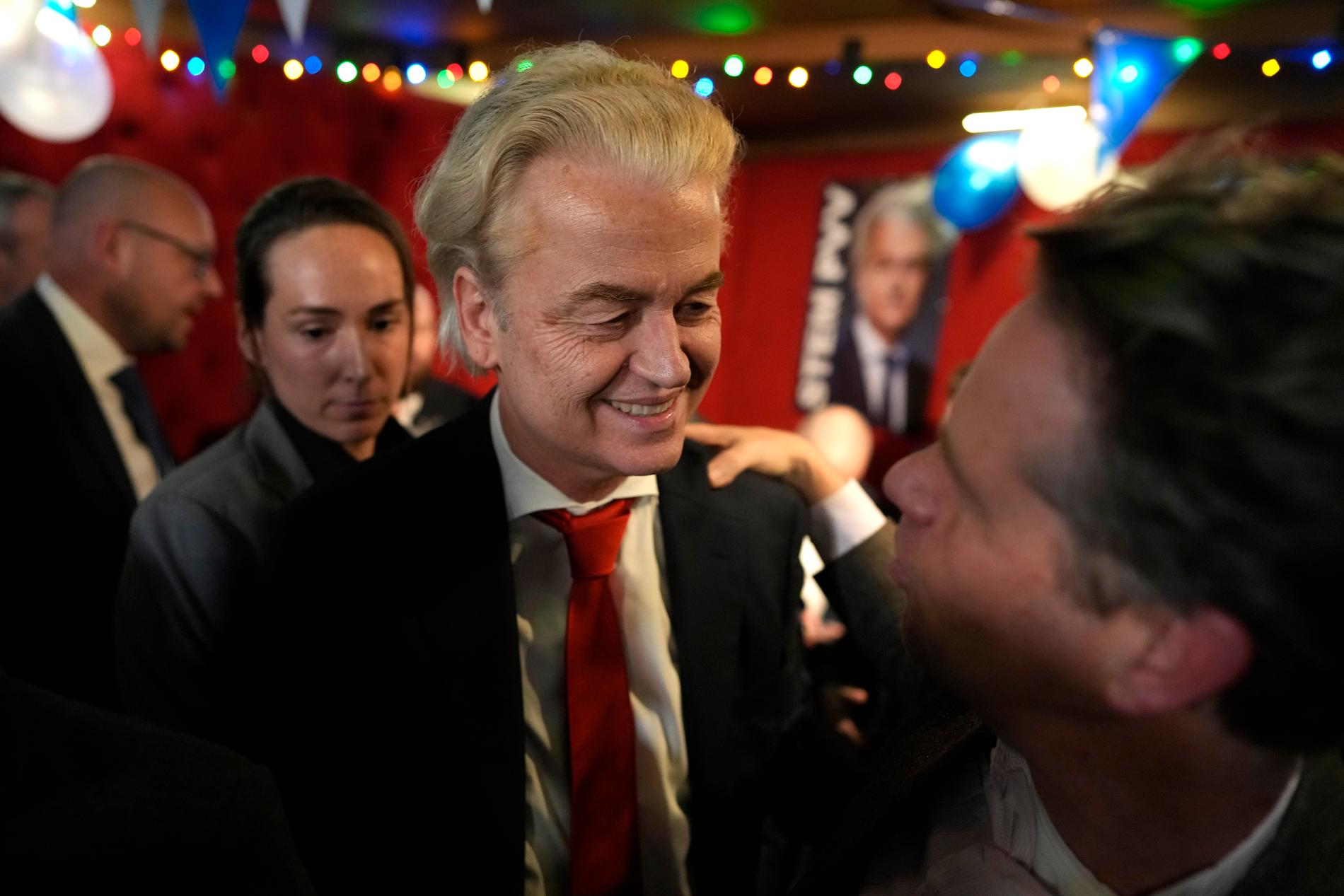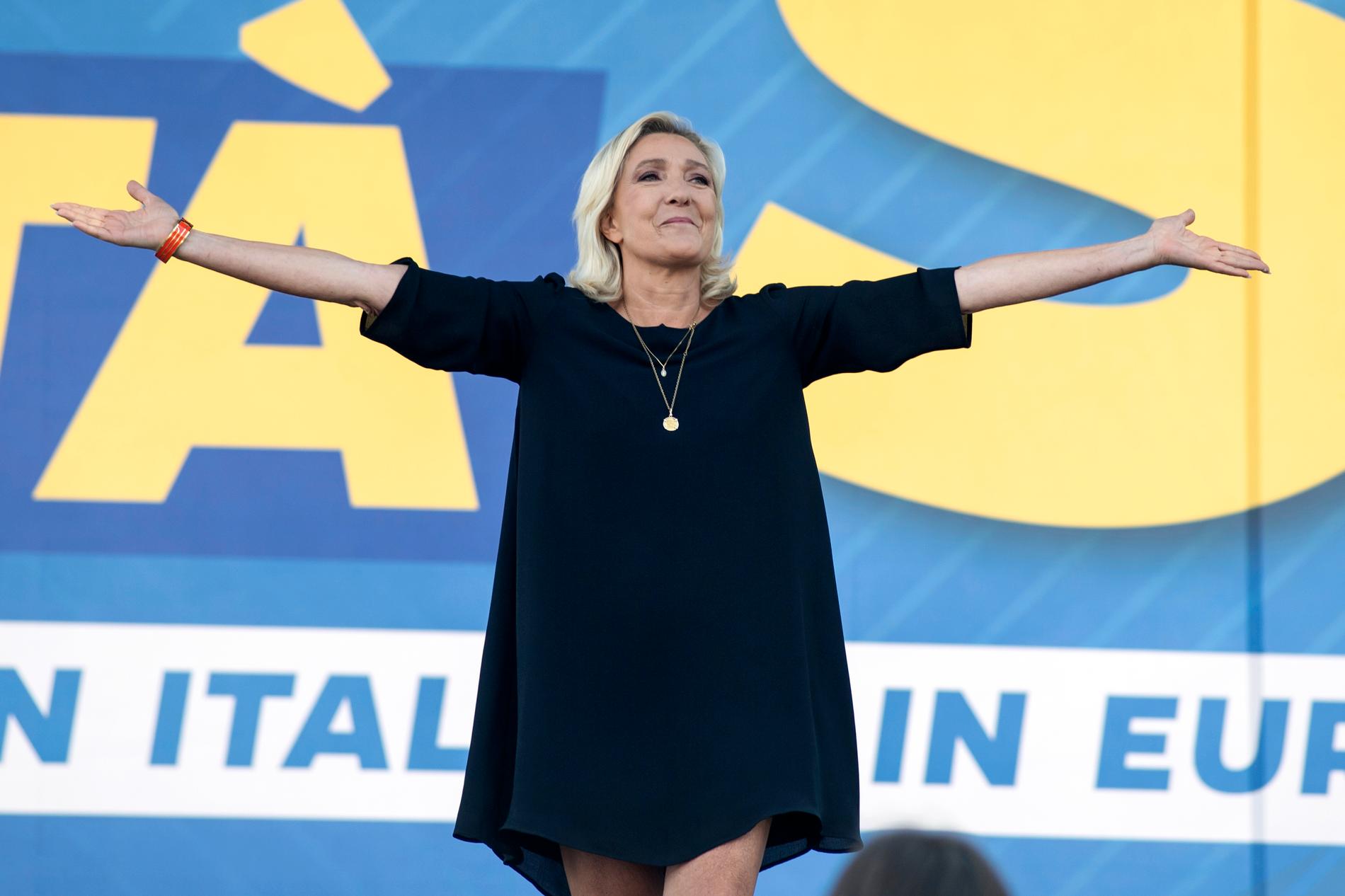
Columnists
Geert Wilders
Formerly liberal Northern Europe on the way to blue-brown
Wolfgang Hansson
This is a commenting text. Analysis and positions are the writer's.
Published 18.20

Geert Wilders now leads by far the largest party in the Netherlands. Photo: Peter Dejong / AP
The surprise victory of anti-Islam Geert Wilders is yet another proof of the right-wing winds that are sweeping across the formerly liberal Northern Europe.
The result in the Netherlands is sending shockwaves across the continent for continued support for Ukraine and ahead of next year's EU elections.
With his platinum hairdo reminiscent of a classical music composer, Geert Wilders has long been a familiar symbol of far-right parties in Europe. He is so controversial that for many years he was forced to live with bodyguard protection around the clock.
It has gone well for his Freedom Party, PVV, in the past – but never this well. 23 percent voted for him.
He now leads by far the largest party in the Netherland. Nevertheless, it is not certain that he will become the country's next prime minister.
Wilders has the same problem as the Sweden Democrats. There are many parties that don't want to take him by force. Some will have to do so if the country is to have a new government.
Shift to the right
Another of the election's rockets, the leader of the newly formed New Social Contract party, has already said he is prepared to work with Wilders. But more are needed.
Wilders has been part of the government documents before, but never from the position of strength that he gets now.
So even if Wilder does not become prime minister, politics will likely shift significantly to the right. A very strong contrast to the liberal governments that have governed the Netherlands for the past 13 years with the widely respected Mark Rutte at the helm.
The Netherlands thus joins a group of countries in Northern Europe where politics has taken a significant step to the right, not least when it comes to views on immigration.
Sweden, Germany and the Netherlands were among the countries that received the most during the great refugee crisis of 2015-16. Now all these countries have signaled that they will apply a much more restrictive migration policy.
Risky journeys
It will make it even more difficult, if not impossible, for the EU to find a solution on who will take in the hundreds of thousands of refugees and migrants who reach Europe every year via perilous journeys across the Mediterranean or by other means.
The election in the Netherlands also sets the tone for the elections to the European Parliament to be held this spring. Traditionally, they are a lot of dissatisfaction choices. Voters vote for extreme parties for which they would not normally vote.
That trend risks becoming even more accentuated next year, when the same moods already have an impact in regular elections.
Above all, voters are annoyed that their own governments and the EU cannot control irregular migration. Despite the increasingly restrictive approach, migrants continue to arrive in a seemingly unstoppable stream. Which becomes a big problem when there are no longer any countries that want to receive them.

Opinion polls show that Marine Le Pen may well become France's next president. Photo: Claudio Furlan / AP
Opinion more receptive
Wilder's "sister parties" breathe morning air and were quick to congratulate the election victory. Hungary's Orban declared that "the winds of change are here".
When the far-right Marine Le Pen's party National Front (now National Gathering) in France in 2014 received 25 percent of the vote in the EU elections, the shock was even greater than over Wilder's victory. Since then, many of the far-right politicians have become more clean-cut. Partly because they deliberately toned down their most extreme proposals and changed their image. But also because public opinion has become more receptive to their message.
Opinion polls show that Marine Le Pen may well become France's next president. When she ran against Macron the first time in 2017, she had no chance. The pariah stamp shone too brightly.
Some of the proposals that the Tidö parties are now putting forward would have been completely impossible a few years ago. Now more and more of them are becoming reality. It looks the same in large parts of the rest of Europe
Finland has a new conservative government that includes the True Finns. In Slovakia, a pro-EU government was recently replaced by a pro-Russian right-wing populist. Denmark has a social democratic prime minister only because Mette Fredriksen largely copied the Danish People's Party's immigration policy.
Even in Germany, where the Social Democrats rule together with the Green Party and the Liberals, the previously welcoming migration policy has been replaced by its opposite.
Difficult to pay
One can suspect that the economic crisis in covids and the footsteps of the Ukrainian war have played a not insignificant role. People across Europe are finding it increasingly difficult to pay rising rents, food prices and interest rates. This at the same time as there are many foreign-born people who are unemployed and living on benefits. A toxic combination.
Wilder's victory should also worry all those who value Europe's unity in supporting Ukraine against Russia. Wilders is an outspoken pro-Putin politician. In the election campaign, he made it clear that he does not want to continue sending weapons to Ukraine. A clear violation of the previous government's approach that promised to send F-16 planes.
It will take time before we finally know how big Wilder's influence will be. The previous government formation took 224 days. Until then, Mark Rutte leads a transitional government.
Inga kommentarer:
Skicka en kommentar